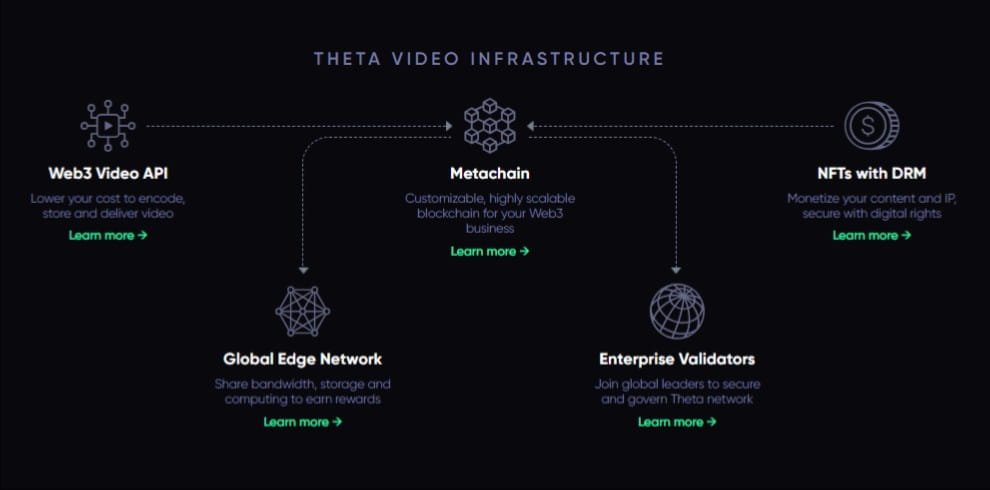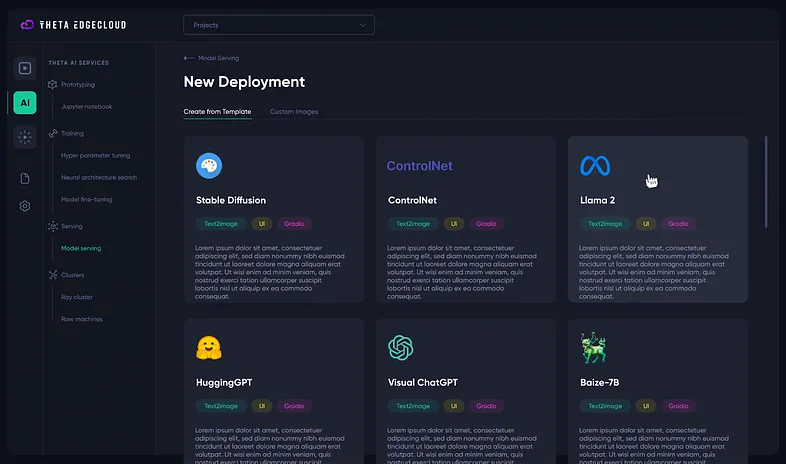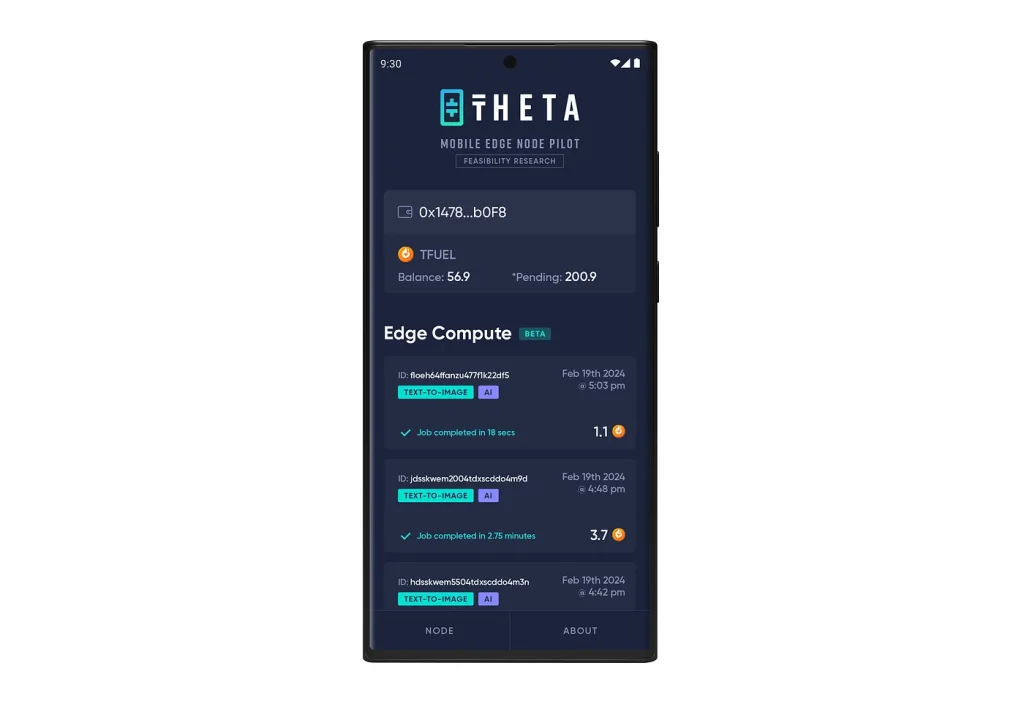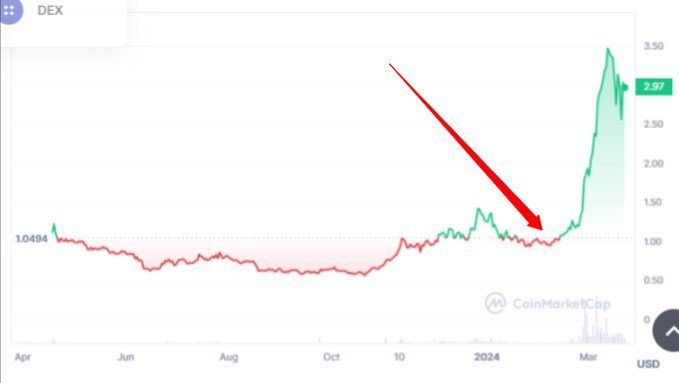Theta EdgeCloud is coming in a few weeks – more specifically on May 1st – and I wanted to better understand what it is and why should we care.
So, took a deep dive into Theta EdgeCloud, going through it’s whitepaper, website and blogs to gather all the important details about this new technology.
So in this post, you will learn about:
What is Theta Network and what is it’s current state?
What Theta Network’s Nodes are used for?
What are ThetaNodes for Android?
How THETA token’s price is expected to move?
So, let’s dive in..
Overview of Theta Network (THETA) And It’s Current State
First, let’s recap what Theta Network is and where the network stands as of writing this post.
Theta Network, a decentralized platform introduced by Theta Labs in Spring 2021, is a groundbreaking technology that aims to revolutionize the way we handle video encoding, transcoding, storage, and peer-to-peer delivery.
This innovative network was designed with the vision of creating a fully decentralized global system run by community members.
The network consists of two complementary subsystems: the Theta Blockchain and the Theta Edge Network.
The former provides payment, reward, staking and smart contract capabilities while the latter handles compute tasks like video streams or AI tasks.
There are two native cryptocurrencies on this blockchain: THETA for staking and governance purposes; TFUEL used as gas for transactions.
According to Theta’s blog, as of 2023, over 10,000 active nodes per month have been recorded on this network which has also launched an advanced feature called Theta Metachain. It’s now considered as leading infrastructure in Web3 video technology.
A significant development in recent years is the introduction of Theta EdgeCloud – a next-generation tech that builds upon existing features to become the first hybrid cloud computing platform based on distributed edge architecture.
The EdgeCloud platform, for which Theta filed a patent in April 2021 and was granted in September 2023, is designed to support generic containerized compute tasks.
This new addition extends its capabilities to support generic containerized compute tasks.
Theta’s Web3 infrastructure offers media companies opportunities for increased revenues and user engagement through new business models.

Its Video API allows developers access to lower-cost solutions for video transcoding and content delivery powered by patented Digital Rights Management technology.
Moreover, it underpins partnerships with big names such as Katy Perry or Samsung via their NFT marketplace called “ThetaDrop“.
They aim at disrupting digital collectibles industry together with other leading brands like Sony or American Idol.
Finally yet importantly, it’s worth mentioning that Google leads their enterprise validator along with other global leaders including Samsung NEXT or Sony Innovation Fund among others.
To close this “Theta overview”, it is important to also mention that advisors of the project include Steve Chen (co-founder of YouTube) & Justin Kan (co-founder of Twitch), providing invaluable insights into their operations.
What Theta Edge Nodes Are Currently Used For?
Theta Edge Nodes are part of the Theta Network, a digital ledger that keeps track of transactions. In the Theta Network, these transactions are often about videos and other media.
Here’s how it works:
- Validating Transactions and Producing Blocks: Theta Edge Nodes can check if transactions are valid, and they can also create new blocks in the blockchain. Blocks are like pages in a ledger.
- Voting on Network Changes: Theta Edge Nodes can vote on changes to how the Theta Network works.
- Earning TFUEL: By doing these tasks, Theta Edge Nodes can earn TFUEL, which is a type of digital currency.
- Paying for Transactions: TFUEL can be used to pay for transactions on the Theta Network.
- Sharing Video Streams: Users can pay Edge Nodes in TFUEL to share a video stream.
The Theta blockchain handles payments, rewards, and smart contracts. Smart contracts are like digital agreements that automatically carry out transactions when certain conditions are met.
The Edge network takes care of storing and delivering media assets like images and videos. It can do different video-related tasks like encoding (changing videos into a format that can be easily stored and sent), transcoding (converting one video format to another), storing videos, and sharing them directly between users without needing a central server.
In short, the current setup of node operators on the Theta network mainly supports activities related to managing and sharing videos in a decentralized way while allowing these operators to earn digital currency rewards.
Here’s a table showcasing Theta Network’s use cases:
| Use Case | Example |
|---|---|
| AI/Deep Learning Model Training and Inference | Helping a computer learn to recognize pictures of cats |
| Video Transcoding and Relaying | Sending a movie from a website to your computer |
| Broadcasting Video Streams | Sharing a video of your school play with your friends online |
| Validating Transactions and Producing Blocks | Checking if a TFUEL payment is valid |
| Voting on Network Changes | Voting to change how often TFUEL rewards are given |
| Earning and Paying with TFUEL | Earning TFUEL for sharing a video, then using it to pay for watching another video |
What is The Theta EdgeCloud?
According to the whitepaper, the Theta EdgeCloud is a type of cloud computing service that works on a wide-reaching network.
It’s made to help different kinds of users, including big companies who need their systems to handle a lot of work and smaller businesses or researchers who want to save money.
This service divides its network into several parts, called shards, each designed for specific types of work.

Some shards are managed by the company Theta Labs in private networks, others are run in partnership with data centers, and there are also community shards that people can join using their own computers like laptops or desktops.
This platform allows for various computing tasks through something called containers. This means users can do all sorts of jobs on the network, from creating media content and working with artificial intelligence to doing scientific research.
The goal is to make this service cheaper than other well-known cloud services such as Microsoft Azure, AWS (Amazon Web Services), or Google Cloud.
Right now, the Theta EdgeCloud is still being worked on. The plan is to introduce it in stages, starting with nodes hosted by Theta and its partners before moving on to a system fully run by user-contributed nodes.
More specifically:
- The first step (May 1st, 2024) involves starting up nodes (which are like individual computers on a network) that are hosted in the cloud and managed by Theta. This part will also introduce rewards for the community based on tokens.
- In the second step, partners such as cloud service companies, mining operations, and members of the community will have the opportunity to establish and operate their own cloud-hosted nodes within partner data centers.
- The final step is to launch a fully spread-out system where Theta edge nodes, run by people in the community, work smoothly together with the networks set up in steps one and two.
By doing things this way, it aims to be more affordable than traditional cloud services.
What are Theta Nodes for Android?
Community nodes running on various devices including smartphones, smart TVs and IoT devices are envisioned to be part of the “Community Shards” in the Theta EdgeCloud architecture.

According to an article published on Theta Network’s blog on Medium, the Theta engineering team is also exploring a new idea to use mobile Android devices in their network.
They want to start testing this idea with a pilot version for Android phones and tablets in the coming months.
Their main goal with this test is to see if they can use the nearly 3.9 billion Google Android devices out there for specific kinds of work that involve artificial intelligence (AI).
Since Android makes up about 70% of all mobile operating systems used in over 190 countries, it’s a good choice for them to check how well these devices can handle certain tasks.
This effort isn’t just about phones and tablets; it also includes over 150 million Android TVs made by companies like Sony, Sharp, and Phillips.
People usually watch TV for about 3 hours a day, which means these TVs have plenty of time when they could be doing other useful things like processing data or sharing information.
As these smart TVs get better at handling more complex tasks because their CPUs (central processing units) and GPUs (graphics processing units) improve, they could play an important part in Theta’s plan.
Right now, doing really heavy computing jobs on mobile devices isn’t very common because they’re not quite powerful enough yet.
However, technology is advancing quickly. For example, TensorFlow Lite lets developers run machine learning models right on mobile or IoT (Internet of Things) devices without needing super powerful computers.
This means that soon these “gadgets” could take on tougher tasks and become an important part of the Theta EdgeCloud network.
Even today, some jobs can already be done by existing devices using Theta Edge Node software. This suggests that all those billions of Android devices around the world might soon help make Theta’s network much bigger and stronger.
How THETA token’s price is expected to move after Theta EdgeCloud goes live in May 1st?
Typically, if a major new product launch drives significant adoption, usage and demand for the platform’s token, can potentially have an upward impact on token price.
In my opinion, the price of THETA token will be positively impacted by the launch of Theta EdgeCloud.
The upcoming launch of the EdgeCloud platform has already had a significant effect on the token’s price, with a notable surge in value.
The announcement of the EdgeCloud platform has led to a surge in the THETA token’s price, with a notable increase in value.

The token has risen for six consecutive weeks and is currently at its highest level since April 2022, having soared by over 507% from its lowest point in 2023.
Of course, this surge can be also attributed as part of the broader rally in the cryptocurrency market.
Bottom Line
Theta EdgeCloud is a new technology that Theta Network is working on, and it’s pretty exciting.
It aims to use the power of lots of computers around the world—including ones we use every day like phones and TVs—to do big jobs more cheaply than traditional cloud services. This could include anything from making videos to doing research or creating new apps.
With plans to make this work with millions of Android devices, Theta could really change how we think about using our gadgets at home.
As for the THETA token, its value might go up because more people are interested in what Theta is doing, especially with the launch of EdgeCloud soon.
All in all, Theta’s future looks promising as they continue to build new ways for us to share and compute data across the globe.
READ NEXT
- What does “contract ownership is renounced” mean?
- What Does LP Burn in Solana Tokens Mean?
- What Is Ethereum’s Dencun Upgrade: Everything You Need to Know
- What is Snapshot in Cryptocurrency?
- What is a Crypto Airdrop And How Does It Work?
Previous Articles:
- Ripple vs. SEC Legal Battle Takes a New Turn with Judge’s Latest Decision
- What does “contract ownership is renounced” mean?
- Verasity Launches Vera Ads to Bridge Web3 Publishers with Traditional Advertising
- What Does LP Burn in Solana Tokens Mean?
- Bitcoin’s Pre-Halving Pattern Emerges Again Amid Market Uncertainty
